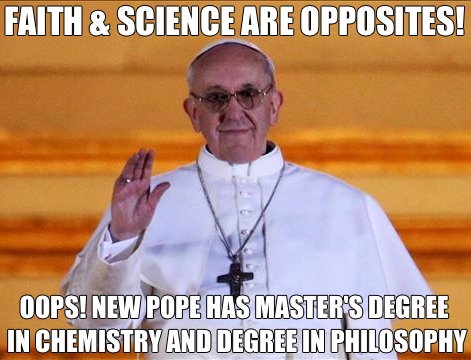Over a year ago I wrote 50 Reasons Why Contraception Is Bad. The post was quite popular and that the #1 complaint about it was not enough detail. So I thought I would add more detail. I didn't really want to commit to writing 50 posts so I thought I would try 10 posts that would each expand on 5 of my quick points. We shall see how it goes.
1. It prevents you from glimpsing the beatific vision in your sex life. That is what sex was meant to be. A foretaste of heaven. It can't be that if you distort it.
God wants to do something awesome in your life through sex. We all know that but we think way too small. God is, at His very core, a love relationship. God is love. That is the most basic truth about Him. The Father loves the Son. The Son loves the Father. The Holy Spirit is the life that proceeds from that love. CS Lewis describes God as a dance. Not something static but constant action and reaction. But God's love is more than a dance. It is fruitful. So God's love by its very nature is not closed in on itself. It is always overflowing to bless something outside itself.
You can see how sex is like that. It draws us into a love relationship. Yet sex is by its nature not just something between a man and a woman. It naturally becomes fruitful. It overflows and blesses the world with children.
Now the physical reality of this is obvious. The important thing to know is it also happens spiritually. When our bodies join together our souls join together and we become spiritually fruitful. This dynamic is the closest thing to heaven on earth because it is parallel with what happens in the interior life of the trinity. The Father loves the Son and the Son loves the Father and the Holy Spirit proceeds from the Father and the Son. The husband loves the wife and the wife loves the husband and the child proceeds from the husband and the wife.
The highest human good is to become a partaker of the divine nature. Embracing marital love in its full fruitfulness does precisely that. Conversely, rejecting marital love in its full fruitfulness becomes a huge desecration of such an amazing gift. We trade a slice of heaven for a few cheap thrills.
2. It makes Christian sexual morality incoherent. Why wait until marriage if sex is not about children anyway? Experience has shown that it takes time but eventually premarital sex becomes the norm. It is even happening among evangelicals.
Why is sex outside marriage wrong? It is the traditional Christian position and it is right. Only few protestant denominations question it. Yet most protestants say contraception is OK. So then why should a couple that is not ready for marriage not have sex? You can come up with some reasons like the potential for any couple to break up but the reasons can sound pretty lame to a young couple in love. A lot of the arguments focus on immaturity. They apply to teens OK but not so much to young adults.
What happens is people start having sex early. At first it is just a little bit early. Couples engaged and maybe just a few months from marriage. But it begins to creep up earlier and earlier. Studies show this is a big problem. Single evangelicals aged 18-30 are almost as likely as unchurched people to have had sex in the last year. It is just a whole lot harder to obey a command that does not make sense.
This is a progressive thing. If sex can become common among evangelical young adult singles then why not among teens? Everything that happened to the unchurched a few decades ago is happening to evangelicals now. More slowly but just as surely things are becoming unraveled. An illogical teaching cannot stand up over time.
3. It can make you marry the wrong person. Dating becomes more about who would I like to have sex with rather than who would I want as a life partner. So you make bad choices.
Once Christian sexual morality breaks down we get the next phase. Sex becomes part of the dating culture. Guess what? It completely messes up dating. Dating becomes more and more short term focused. The possibility of having sex with this person sometime soon becomes way more relevant than whether or not I am being smart in my search for a life partner.
People get locked in serial monogamy. That is they commit enough to get sex but not permanently. So they move from one sexual relationship to another. They get scarred and cynical. It is good preparation for divorce. It is lousy preparation for marriage and lousy preparation for religious life.
4. It reduces marriage from a commitment to spend your life populating the world with people like your fiancee to simply committing to live with that person.
Living with someone and sleeping with them are kind of mild sacrifices. For those waiting for marriage the alternative is sleeping with nobody. For those not waiting the alternative is finding a new partner every once in a while as you get older. Either way you can see a permanent arrangement being attractive even if you didn't really love the person. You get something and you give something but it is limited.
Children are unlimited. Especially if you have the notion that marriage is about children. That you should accept as many as practical. Then you are talking about an endeavor that will consume much of your life. What is more, the children involved will be a lot like the person you are going to marry. So that person had better be quite something. If you don't believe your spouse is a true blessing to the world then it is not going to make sense to put out so much effort to make more people like him or her.
5. It opens the door to gay marriage because marriage is no longer about children.
We talk a lot about redefining marriage. Really when artificial contraception came along marriage was redefined. It changed the focus from children to sex. But even the nature of sex was redefined. It is now something that can be manipulated. So if you can manipulate sex a bit then why can't you manipulate it a bit more? That is all homosexuality really is. It changes the nature of sex but all those lines were already crossed in contraception. So the argument against homosexuality becomes incoherent. Really the biggest difference does become the number of people involved. There are more people who want to contracept then who want to have homosex but that is a pretty weak difference. It held up for a while but it isn't making sense anymore.







